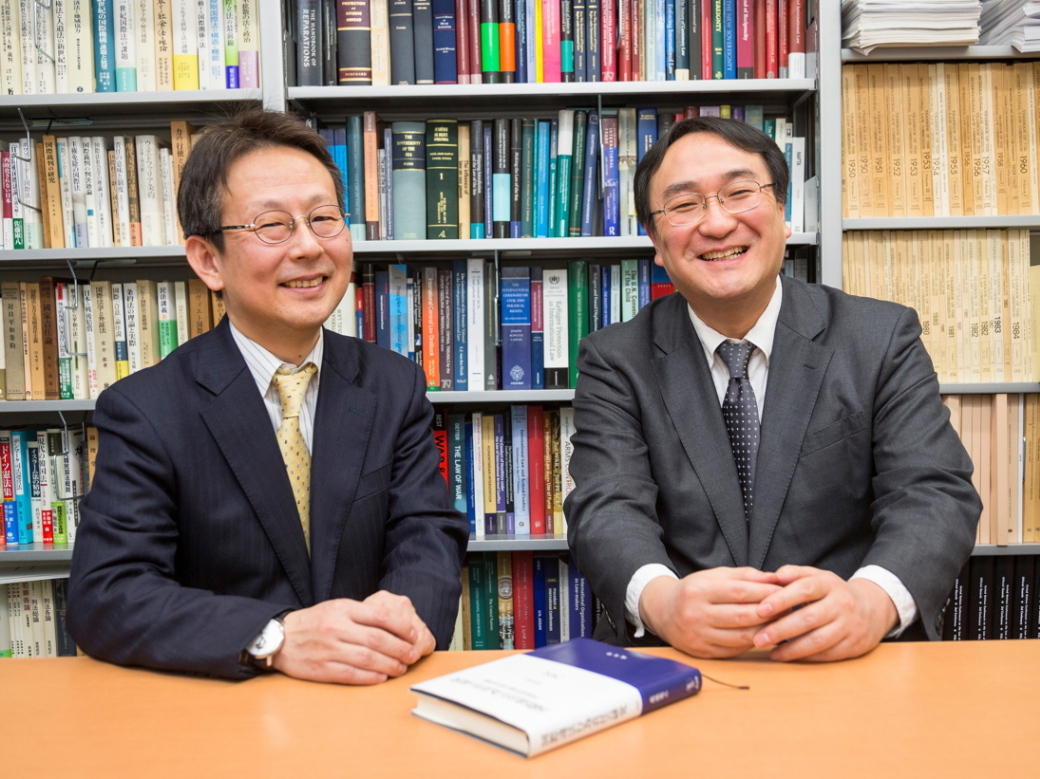Waseda Frontline Research Vol.15: Aiming to organize the legal system related to state responsibility (Part 2 of 2)
Mon, May 29, 2017-
Tags
Researcher on international law
Hiroyuki Banzai, Professor, Faculty of Law
Ministry of Foreign Affairs
Kimitake Nakamura, Director of the Treaties Division, International Legal Affairs Burea
Challenges for practitioners and scholars of international issues
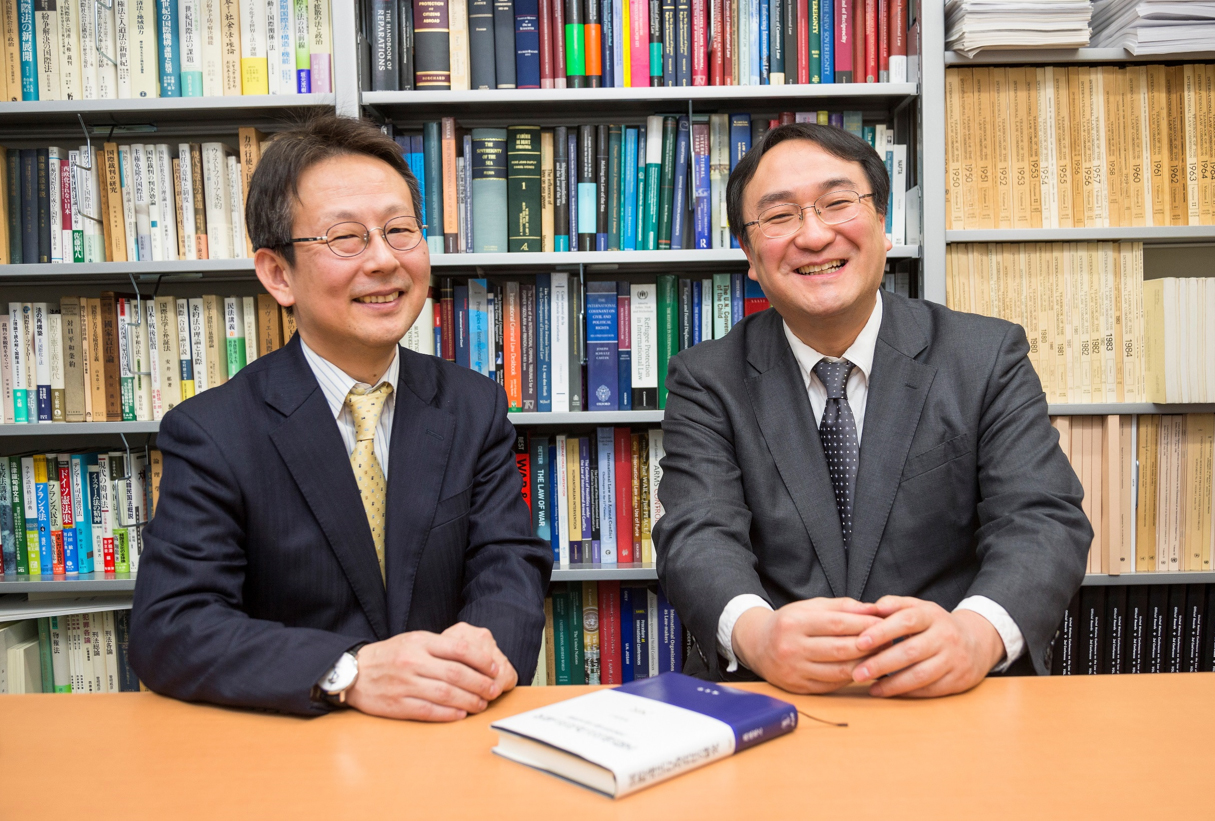
Kimitake Nakamura from the Ministry of Foreign Affairs teaches Advanced International Law (International Security Affairs), a third-year administration course at the School of Law. He and Professor Hiroyuki Banzai, who initially invited Mr. Nakamura to Waseda University, shared their respective perspectives as practitioners and scholars of international law on the challenges in international issues.
Division of roles of researchers and practitioners
Banzai: For researchers, treaties are research topics, but for someone like you involved in the practical affairs of diplomacy, a treaty is something that needs to be written. When drawing up a treaty, how do you balance its legal aspects with policy in order to reflect Japanese foreign policy interests?
Nakamura: If Japan is to strengthen foreign trade while cooperating with other countries to remain a peace and stable nation, all important items must always be documented, and the most important ones are treaties. Asyou said, for us practitioners, a treaty is something we assertively and proactively go to write in order to realize policies vital for Japan. In doing so, we must carefully follow the general rules of international law, which have been created over time through the actions of countries around the world.
Banzai: The role of researchers is to analyze and accurately describe the circumstances of events in the real world, as well their context and current state. In contrast, practitioners write treaties as a way to realize policies. In your opinion, how does the work by researchers help practitioners?
Nakamura: Let me give you an example. All over the world, there are conflicts and acts of terrorism in which even Japanese people are sometimes harmed, making this not just somebody else’s problem but a concern for everyone living in this country, too. As the last resort to address these problems, military force may be used against countries or organizations that violate international laws. But, under what conditions and to what extent is this acceptable? Moreover, what kind of attitude should Japan take? Japan faces this kind of challenge from time to time. Such international rules have been developed gradually through two world wars and over a long period of time afterwards. Researchers study these rules and create systems based on theory. We practitioners study the results of these systems while thinking about which policy to adopt. Then, the policy that the government decides on, sometimes painstakingly, becomes the subject of new research by researchers… There seems to be this kind of cycle. In your book, you clearly describe the development of a system which encourages compliance with international laws on environmental protection by having political pressure be applied to states for non-compliance. This kind of work is also extremely important for us in the real world.
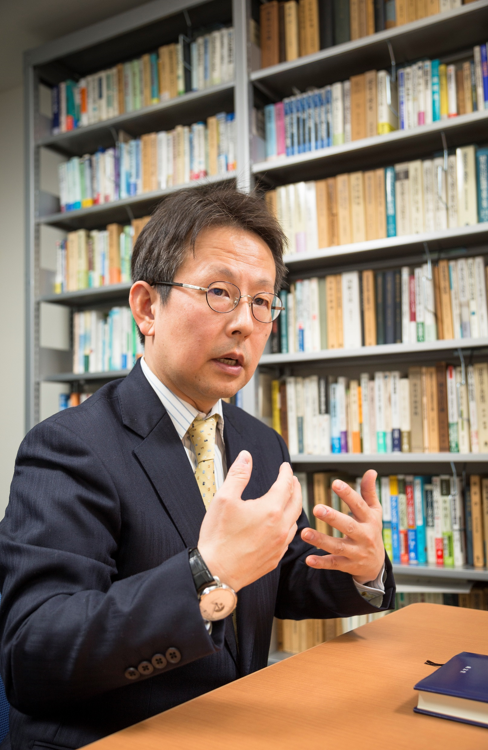
Photo: Kimitake Nakamura. When asked what makes Professor Banzai special, he replied, “Of course his research, but also the fact that he contemplates carefully the future of each of his students and guides them.”
Banzai: Would you say that by having researchers sort out the past problems which practitioners had difficulties with or the direction of social order which the international society attempted to create, it could act as a brake on reckless politics in the future or as a guideline when conducting political affairs?
Nakamura: Yes. International laws are unique in a sense that questions asking whether or not if it is an actual law still comes up. Nevertheless, international laws are rules that check the behavior of countries. Without them, the world could never be stable and people’s livelihood would not be protected. It is very important that researchers sort through and organize the behavior and performance of countries in a scientific manner, and show the extent to which international actions of individual countries are permitted by law.
Ruling by positive laws and dealing with situations beyond the scope of law
Banzai: Although the phrase “rule of law” is used in a broad concept, it does not mean that positive international laws are complete. This raises the question of how to respond to a situation that falls outside the scope stipulated by positive laws. In extreme cases, there is even a threat for politics to go out of control. Do you feel such gap inthe area of international cooperation
Nakamura: The world of cyber defense currently seems to apply to this situation. The concept of cyberspace is anew one, and there are still not many examples of treaties that mention it. Some claim that it is a space where international laws have not been reached yet. But, if we accept such a claim, people might be able to get away with anything. Existing international laws can play an important role, even in cyberspace, and perhaps this is something Japan should advocate.
Banzai: For researchers, dealing with problems aside from those that can be actually proven by positive laws tends to be difficult. Nonetheless, just because the law has not been organized, law scholars must address problems such as cyber attacks, which are actually taking place in reality.
Nakamura: Yes, that’s right. In any country, practitioners have to resolve incidents occurring daily, and it is not easy to find time to research the fundamental areas of law in depth and reflect on daily activities from an academic perspective. For practitioners and researchers to work toward the same goals while taking on their distinctive roles is preferable.
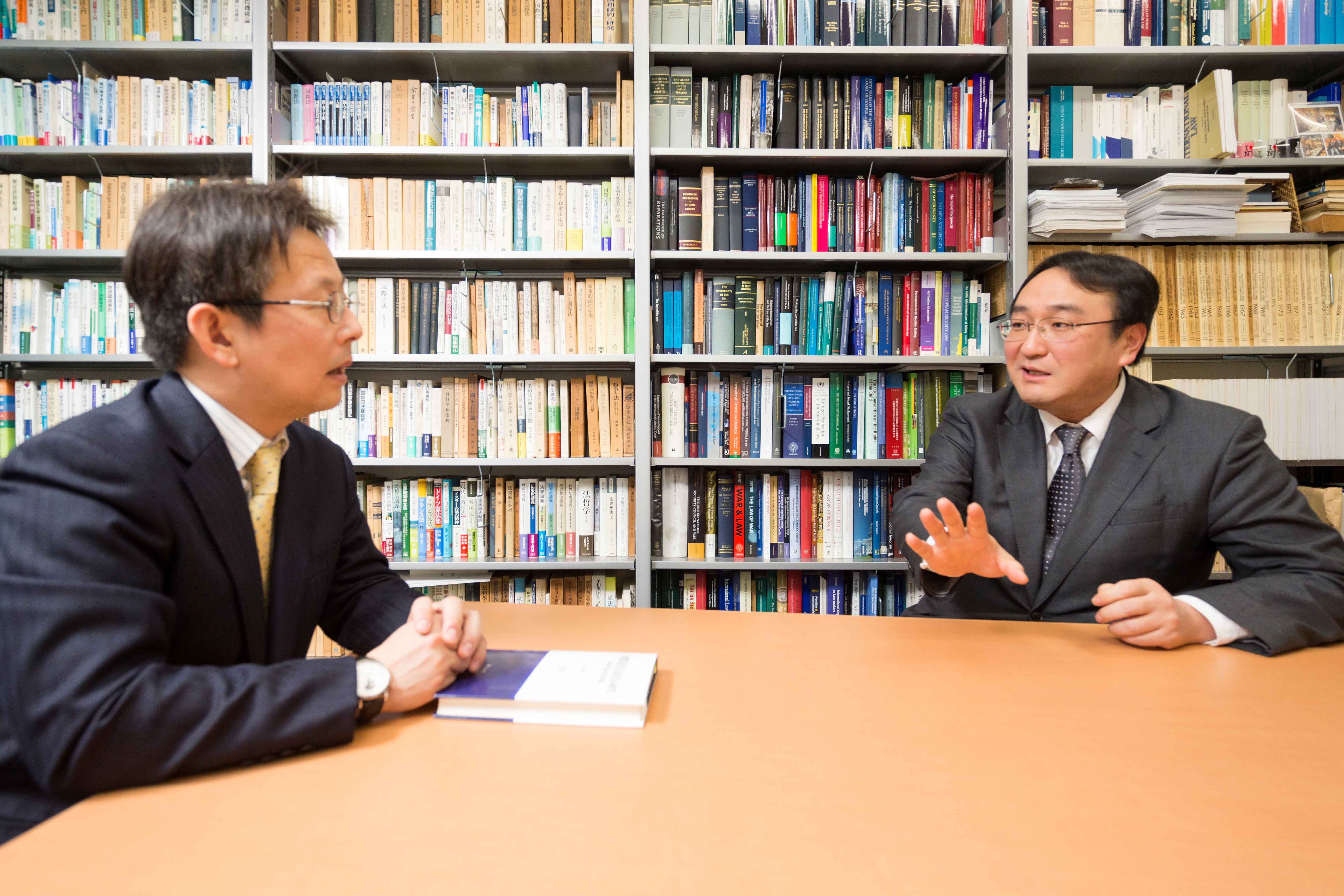
Photo: Engaging discussion on the subject of Professor Banzai’s book and the way international law works
Concerns regarding the trend to undermine the rule of “agreements must be kept”
Banzai:
Nakamura: Fortunately, Japan is an exceptionally stable, democratic country compared to others around the world, but looking at trends since the Brexit vote, it has become clear that, whether multilaterally or bilaterally, the idea of pacta sunt servanda could actually be toppled as a result of democratically-made decisions. It is not exactly a desirable situation, but we have to accept the reality that it could happen and develop tactics based on that premise.
Banzai: In democracy, there are times when it is acceptable for majority opinion to override the rules and times when it is not. On the question of whether to determine such a standard, the international society is currently searching for an answer. But, if this situation is neglected and the values of pacta sunt servanda themselves are weakened as a result, the fundamental principle of international law will be lost. Both researchers and practitioners alike need to realize that this would be an alarming state of affairs.
Nakamura: Some countries are more powerful than others. Accepting attempts to change status quo by coercive means would mean returning to the law of the jungle. As you said, widely disseminating the rule of pacta sunt servanda, “agreements must be kept,” is important for world peace. If international order strays from this rule, albeit in a democratic way, many countries might end up digging their own grave. We need to speak out to bring the rule of law to people’s attention.
Banzai: The reason for questioning state responsibility is the consent between sovereign nations. Simply put, itmeans that, “A promise was made then, and now, we must keep it.” However, if the regime and the nation’s leaderchange because of particular opinions, the will of the nation vanishes and all consent go to waste. We shouldgreatly fear such situation in which the rule of law itself could collapse.
For readers who are less exposed to international law on a daily basis
Banzai: The world of international law and foreign diplomacy may be distant from your everyday life. However,what would happen if a missile was launched at Japan, or if agricultural crops were impacted by climate change?Although such things do not usually cross our minds, they could threaten the prerequisites underpinning daily life.Those prerequisites are maintained by the formulation and observation of international laws. I wonder whether people might see things differently if they realized that international law, like any other infrastructure, is a part of the foundation supporting their daily lives.
Nakamura: For example, many fish sold at conveyor belt sushi bars are imported, and the custom duty determined by international trade agreements greatly affects their prices. In addition, the Japanese economy benefits from inbound foreign tourists buying lots of Japanese electrical goods, and international laws related to intellectual property rights protect the competitiveness of Japanese products. Meanwhile, I think that our efforts to conserve energy and concerns about CO2 emissions reflect our awareness of standards in international law, such as the UN Framework Convention on Climate Change. In other words, international laws even impact our lifestyle. Japan cannot survive without interacting with the rest of the world, and Japanese people are protected by international laws, allowing them to lead comfortable lives. That’s what I want people to know.
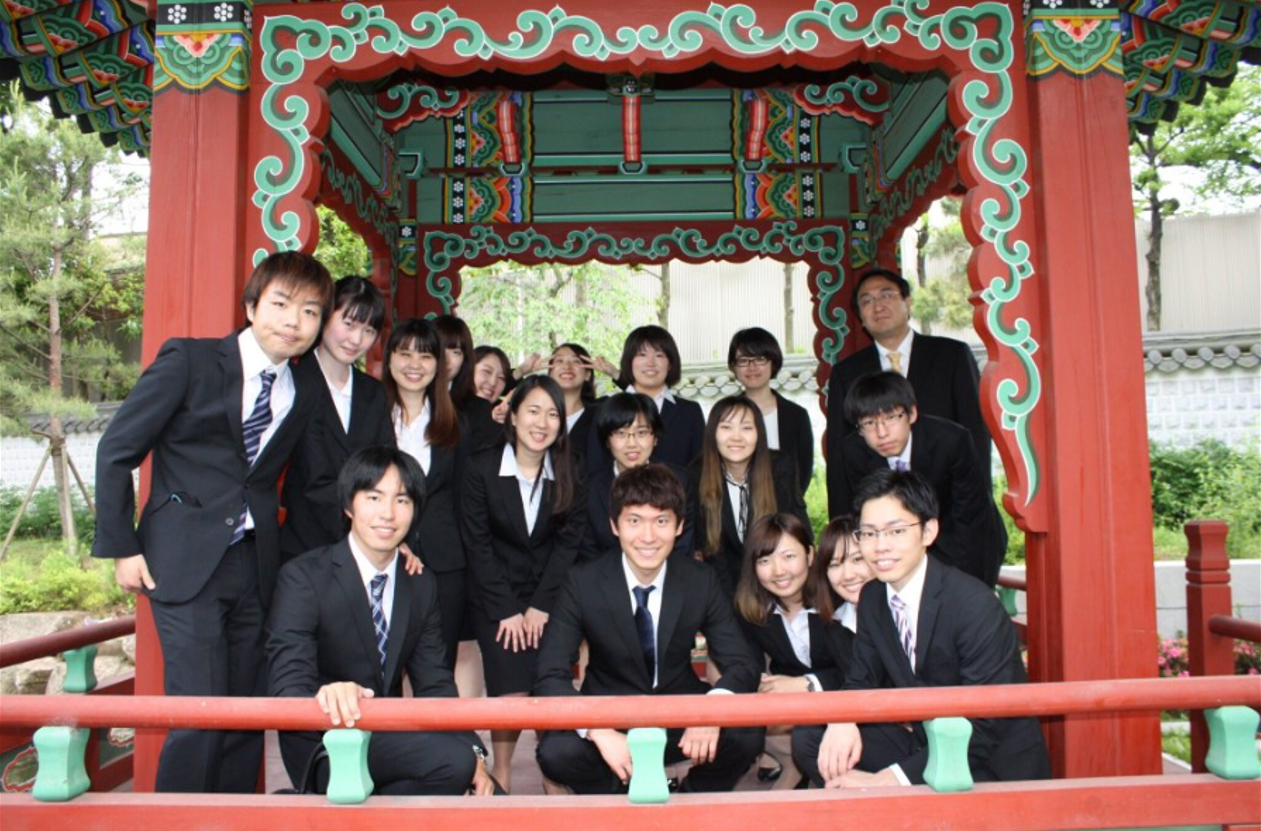
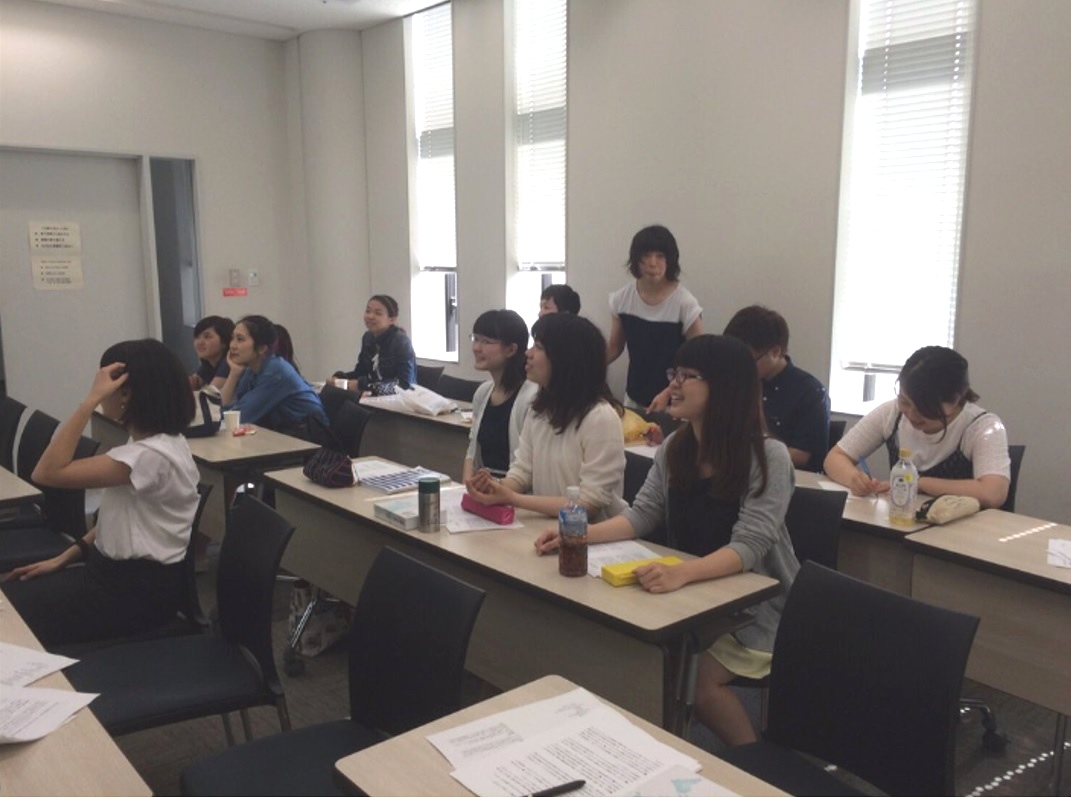
Photo: Professor Banzai’s Seminar (Top: Visit to Embassy of South Korea, Bottom: International law seminar (Both photos from Waseda University’s Banzai Seminar “International Law & International Organization Law” (Taken from https://twitter.com/banzaiseminar)
Profile
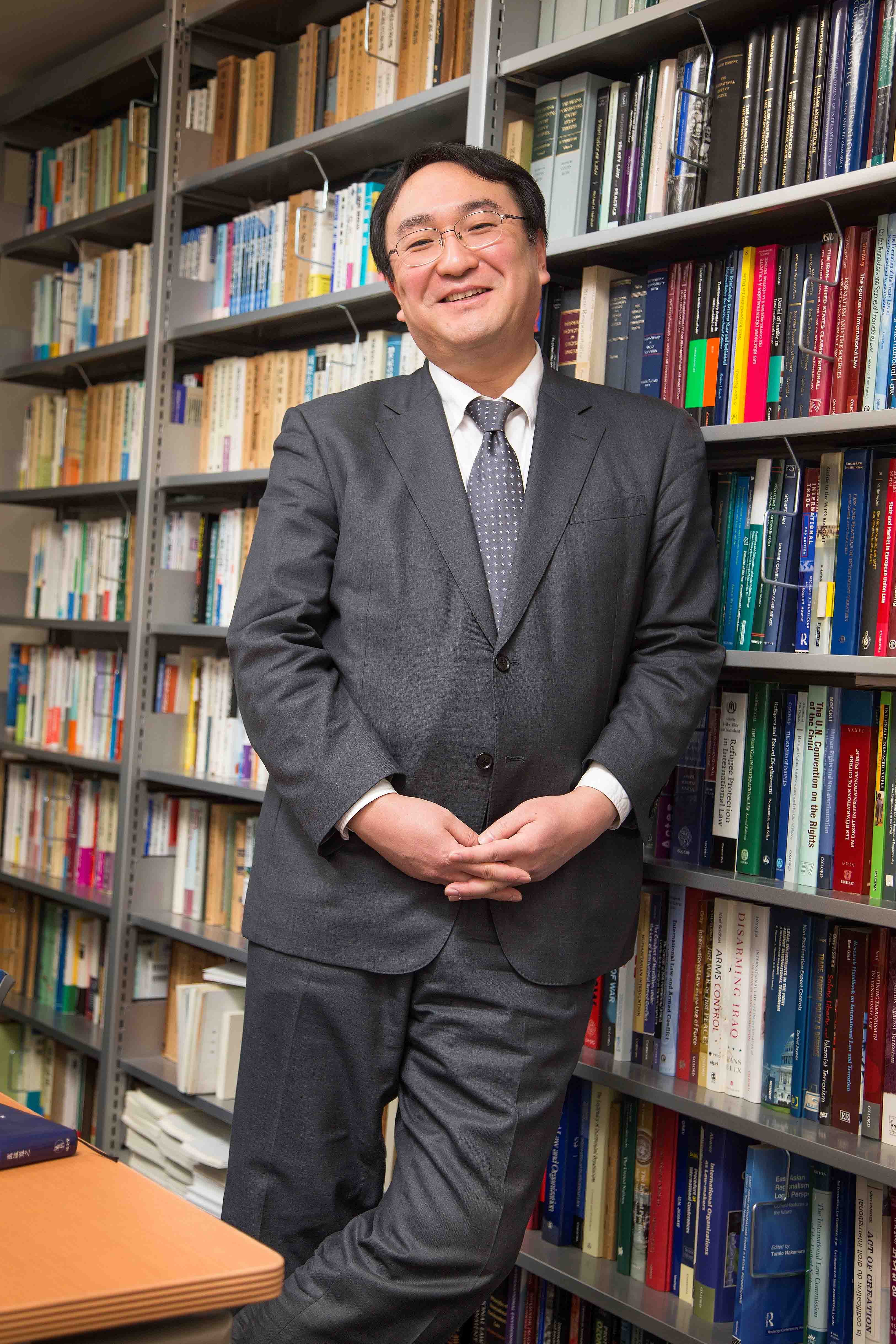 Hiroyuki Banzai
Hiroyuki Banzai
Professor Hiroyuki Banzai obtained his Master’s degree from the Graduate School of Law at Waseda University. He worked at Surugadai University as a full-time lecturer starting in 2003, then associate professor in 2006 before joining Waseda University’s Faculty of Law as an associate professor in 2009.Professor Banzai was appointed Professor, Faculty of Law in 2011.
Research key words: Theories on sources of law, international responsibility ofstates, disarmament and non-proliferation
Major achievements
Books
- Banzai, H. Study on the Responsibility for Internationally Wrongful Acts. Seibundoh, September 2015.
Journal articles
- Banzai, H. “Function of the Provisions of Responsibility of States in Treaties,” Waseda University Institute of the Policy of Social Safety Bulletin (7), (August 2015), p. 3 – 20. [click here to view]
- Banzai, H. “The Concept of ‘Reparation’ in the Law of State Responsibility for Internationally Wrongful Acts,”Waseda University Law Departmental Bulletin 88 (2), (March 2013), p.65 – 128. [click here to view]
- Banzai, H. “Issues in Accepting Overseas Support during the Great East Japan Earthquake,” Waseda University Institute of the Policy of Social Safety Bulletin (4), (March 2012). [click here to view]
Other publications available here
Honors and awards
- 49th Adachi Memorial Award for the book Study on the Responsibility for Internationally Wrongful Acts [click here to view]
Profile
 Kimitake Nakamura
Kimitake Nakamura
Mr. Kimitake Nakamura graduated from the School of Political Science and Economics, Waseda University. After joining the Ministry of Foreign Affairs in 1992, he was involved in the Japan-US security field for many years, including a posting as a diplomat at the US Embassy. He has held his current position since January 2017. Mr. Nakamura was a member of the inaugural Okuma Juku Next Leaders Program . In the School of Law’s fall semester “Advanced International Law (Security)” course, he lectures on the art of using international laws and legislation to resolve a succession of security challenges faced by Japan in the world.(The statements on this website include personal opinions which are not the official opinions of the Government of Japan.)


